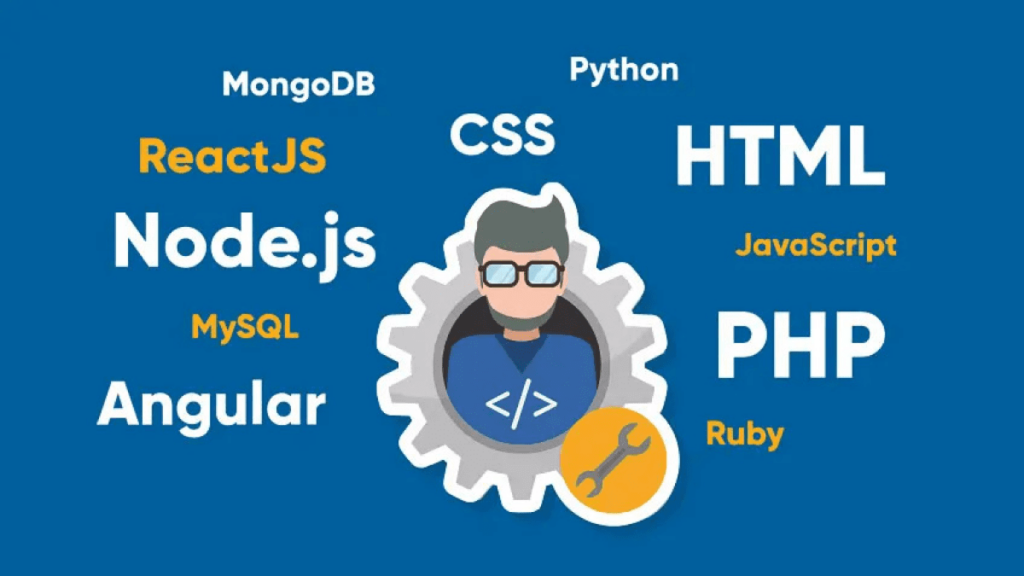In the dynamic world of web development, the role of a full stack developer has gained immense prominence. These versatile professionals are adept at handling both the front-end and back-end aspects of web applications, ensuring seamless functionality and user experience. In this extensive guide, we delve into the nuances of full stack development, exploring the required skills, popular technology stacks, and career prospects.
What is a Full Stack Developer?
A full stack developer is a multifaceted individual capable of overseeing the entire web development process, from conception to deployment. Unlike specialized front-end or back-end developers, full stack developers possess a comprehensive skill set that enables them to handle diverse tasks. They collaborate with clients during the project planning phase, translate requirements into actionable plans, and execute them with precision.
Required Skills for Full Stack Developers
To excel in the role of a full stack developer, one must possess a diverse array of technical skills coupled with strong soft skills. Let’s delve into the key areas of expertise required for full stack development:
10 Popular SQL Databases Management System
- Front-End Development: Full stack developers should have a deep understanding of front-end technologies such as HTML, CSS, and JavaScript. Proficiency in popular frameworks like Angular, React, or Vue.js is essential for building interactive user interfaces.
- Back-End Development: A solid grasp of server-side programming languages like Node.js, Python, PHP, or Java is indispensable for full stack developers. They should be adept at building robust backend systems, handling database operations, and ensuring seamless communication between the server and client.
- Database Management: Full stack developers need to be proficient in working with various databases, including relational databases like MySQL, PostgreSQL, or SQL Server, as well as NoSQL databases like MongoDB. They should be capable of designing efficient database schemas, optimizing queries, and ensuring data integrity.
- Version Control Systems: Proficiency in version control systems such as Git is essential for effective collaboration and code management. Full stack developers should be well-versed in Git workflows, branching strategies, and code repository management.
- API Integration: In modern web development, integrating external APIs is crucial for enhancing the functionality of web applications. Full stack developers should be adept at consuming and integrating APIs, whether it’s for payment gateways, social media platforms, or third-party services.
- Security Best Practices: With cyber threats becoming increasingly prevalent, full stack developers must prioritize security in their applications. They should be familiar with common security vulnerabilities and best practices for mitigating risks, such as SQL injection, cross-site scripting (XSS), and authentication mechanisms.
- UI/UX Design: While full stack developers focus primarily on the technical aspects of web development, having a basic understanding of UI/UX principles can significantly enhance the user experience of their applications. They should be able to collaborate effectively with designers to create intuitive and visually appealing interfaces.
- DevOps: In today’s fast-paced development environment, familiarity with DevOps practices is essential for streamlining the software development lifecycle. Full stack developers should have practical experience with continuous integration/continuous delivery (CI/CD) pipelines, automated testing, containerization (e.g., Docker), and cloud platforms like AWS or Azure.
- Soft Skills: In addition to technical expertise, full stack developers should possess strong soft skills such as communication, teamwork, problem-solving, and time management. They should be able to collaborate effectively with cross-functional teams, adapt to changing requirements, and deliver high-quality solutions within deadlines.
Popular Technology Stacks
Full stack development is often associated with specific technology stacks that encompass a combination of front-end, back-end, and database technologies. Some of the popular technology stacks include:
- MEAN Stack: The MEAN stack comprises MongoDB (a NoSQL database), Express.js (a web application framework for Node.js), Angular (a front-end framework), and Node.js (a server-side JavaScript runtime). This stack is well-suited for building dynamic and scalable web applications using JavaScript across the entire stack.
- LAMP Stack: The LAMP stack consists of Linux (the operating system), Apache (the web server), MySQL (the relational database management system), and PHP (the server-side scripting language). It has been a longstanding choice for web development, particularly for building traditional PHP-based websites and applications.
- MERN Stack: Similar to the MEAN stack, the MERN stack incorporates MongoDB (as the database), Express.js (as the web framework), React (as the front-end library), and Node.js (as the runtime environment). This stack leverages the power of JavaScript throughout the development process, offering a seamless and efficient workflow for building modern web applications.
Career Prospects for Full Stack Developers
The demand for full stack developers continues to soar as organizations seek versatile professionals capable of handling end-to-end development tasks. Full stack developers are well-positioned to pursue diverse career opportunities across various industries, including technology, e-commerce, finance, healthcare, and more.
With the rapid evolution of web technologies and the proliferation of digital products and services, full stack development offers immense growth potential and job security. Whether working as freelancers, joining startups, or contributing to large enterprises, full stack developers play a pivotal role in driving innovation and delivering value to end-users.
In conclusion, full stack development represents a holistic approach to web development, empowering developers to tackle complex challenges and deliver comprehensive solutions. By mastering a diverse set of technical skills, embracing continuous learning, and honing their soft skills, aspiring full stack developers can embark on a rewarding and fulfilling career journey in the ever-expanding realm of web development.
In this comprehensive guide, we’ve explored the intricacies of full stack development, from the essential skills and technology stacks to the career prospects and opportunities in the field. Whether you’re a seasoned developer looking to expand your skill set or a novice aspiring to enter the world of web development, the role of a full stack developer offers endless possibilities for growth, innovation, and impact.
